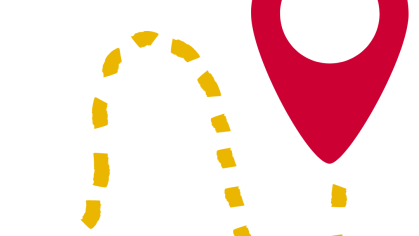
IDEA Studio Hours
Weekly meetings for the IDEA community to come together to practice creative and design thinking, discuss projects, and explore areas of interest.
The university remains open. For changes to schedules, including remote instruction and operations due to expected weather conditions, check the Rutgers–New Brunswick Operating Status page.

Welcome to Rutgers–New Brunswick
Whether you're a first-year student or well on the way to your degree, Rutgers is a big place with limitless possibilities. Click below to find handy tips to start your semester off right.
The IDEA Expeditions Program
Find out more about different things you can experience through IDEA. IDEA consists of a variety of unique experiences that help our students learn new skills and also put them to the test. We host Design Labs, workshops, and other programs that last from a few days to even a whole semester.
What is The Expedition Program?
The Expeditions Program is a two-year program for First-Years and Sophomores and is part of the larger IDEA. community. The program experience combines for-credit, co-curricular, and paid experiences that empower you to explore your interests, apply your creativity, learn about different fields of study.
IDEA Expeditions builds your skill set to better position you to make decisions about your curriculum, engage with faculty, and determine your career path. It is a mix of the arts, sciences, humanities and engineering paired with design, innovation, experimenting, and above all else – having fun.
Why IDEA Expeditions?
The design and entrepreneurial communities at Rutgers harness cutting-edge faculty research and New Jersey’s rising innovation ecosystem. Together, we are shaping the next generation of innovators.
As Rutgers prepares the future workforce through programs like i.d.e.a., we recognize major innovations and discoveries will be found at the cross-section of interests and different fields of study.
As a student in the Expeditions Program, you will be encouraged to be creative, generate ideas and learn new skills that will prepare you for your future and your career.
Program Components

IDEA Studio Hours
Weekly meetings for the IDEA community to come together to practice creative and design thinking, discuss projects, and explore areas of interest.
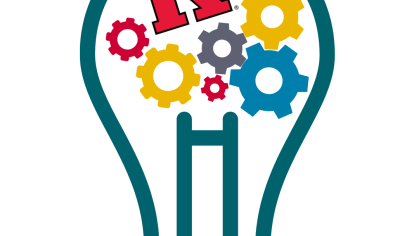
Design Labs and Challenges are projects that utilize design thinking and the design process to develop solutions to address challenges in health, economy, education and environment.
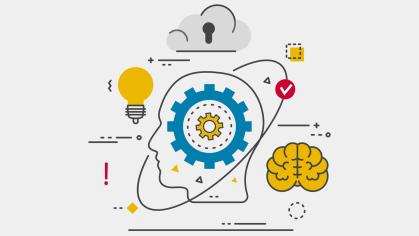
IDEA-Byrne Seminars are small, one-credit courses, limited to 20 students. These classes are taught by faculty from our world-renowned research centers from across the university.
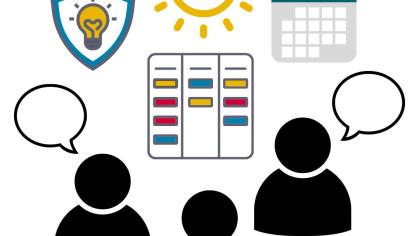
Summer Design Program
A guided summer fellowship through which students work with community partners on problem areas of interest to the organization based upon mission and/or philanthropic focus or area.
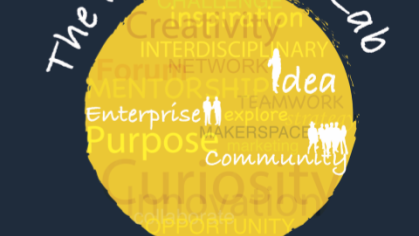
An experiential and practicum course that uses a multidisciplinary and collaborative approach to teach students innovative and creative design-thinking, as well as the practical aspects of launching and leading a social innovation start-up venture.

StoryLab
Workshop where IDEA students hone their storytelling chops by choosing and crafting a short personal story designed to be told live with no notes and connect with other IDEA students while practicing skills for pitching, interviewing, and just being a better storyteller in general!
Discover Learning Pathways
IDEA asks students what problems they want to solve. We have curated learning pathways organized around complex challenges that innovated faculty, research centers, and university resources at Rutgers-New Brunswick are uniquely situated tackle.
New Jersey is home to 130 miles of coastline. This pathway explores the ways in which our coastal systems afford us unique innovation opportunities in aquaculture, off-shore wind, and addressing climate change.
New Jersey is the medicine chest to the world. This pathway explores our diverse ecosystem of life science companies and organizations working in the field of public health.
New Jersey's nickname is the ‘Garden State’. This pathway explores where our food comes from, access to appetizing food that is convenient, affordable, and safe, and what the consequences are of our food choices and preferences, not only for our own health, but also the health of the planet.
This pathway seeks to develop community partnerships, embedding civic engagement through participatory and co-design methods, as part of the undergraduate co-curricular experience.
What are microcredentials?
Microcredentials are awarded upon completion of the Expeditions Fellowship:
Emerging Innovator
Recipients of the Emerging Innovator microcredential have successfully completed the IDEA Expeditions Program.
Creative ideation | Problem solving | Agile and Design Thinking | Presentation | Collaboration
Accomplished Innovator / Innovation Expeditions Fellow
Recipients of the Accomplished Innovator / Innovation Expeditions Fellow microcredential have successfully completed the IDEA Expeditions Program.
Building a collaborative culture | Creative ideation | Problem solving | Agile and Design Thinking | Presentation | Collaboration | Communication | Storytelling | Entrepreneurial Thinking
